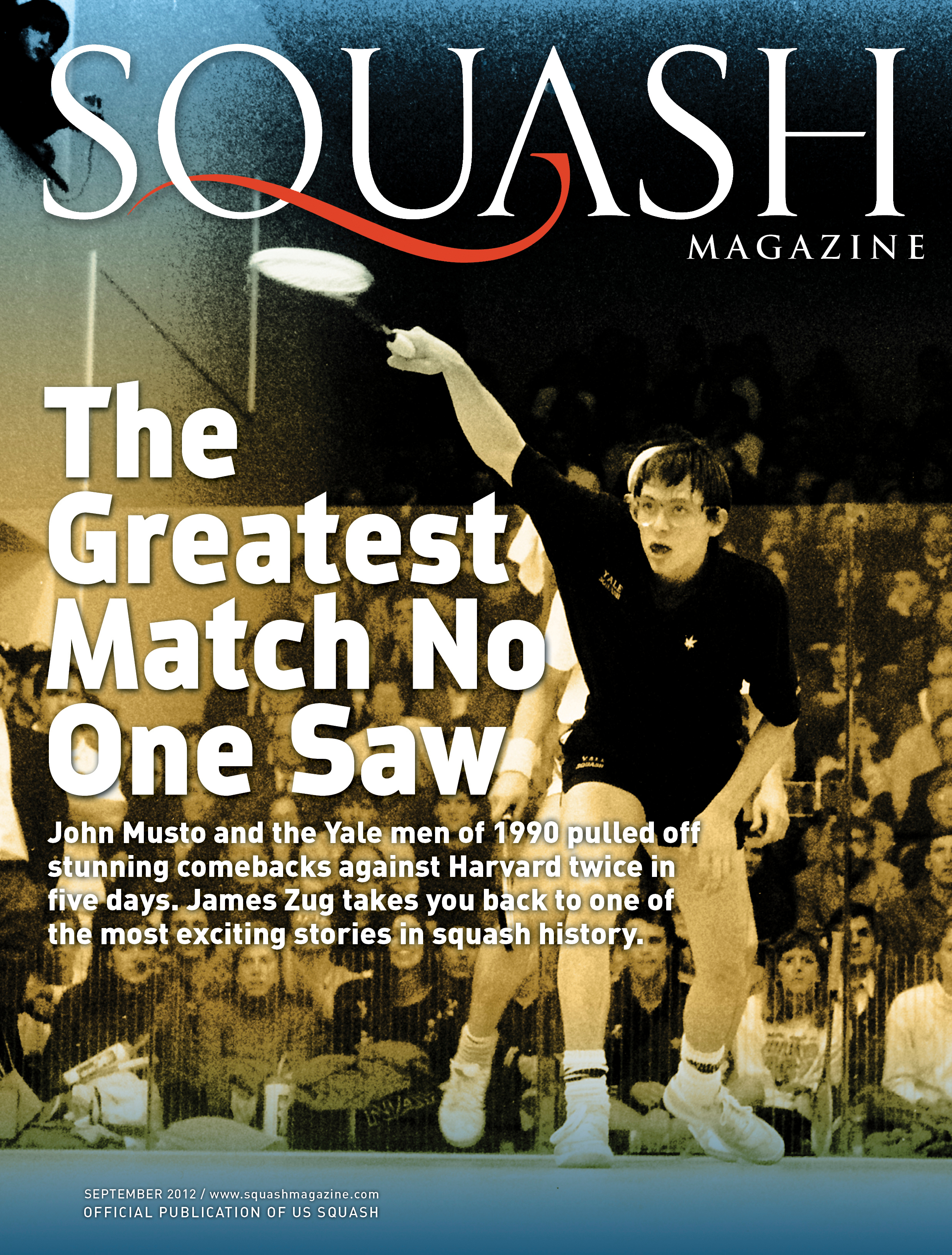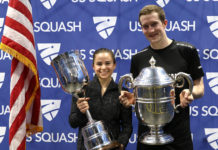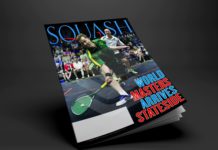Every once in a while, I come across a story in this great game that just captures my interest. There was the Trinity surviving against Princeton story several years ago when Gustav Detter won the decisive match over Yasser El Halaby. Or the Preston Quick story at the U.S. Championships when he overcame a head-on collision 36 hours before the S.L. Green final but beat Damien Walker for the first time after rattling off seven straight points in the deciding game, having trailed 8-4 (we’re talking old-school scoring).
Those stories provided drama that is so often absent from squash (partly because of our sport’s standing in relative obscurity). But there are also the stories of juniors who keep working hard, year after year, and ultimately reach heights that few thought possible. Julian Illingworth comes to mind.
The thing is, most of those developmental stories are owned by young up-and-coming players. So when I hear about adults deciding to work on their own games with the goal of playing in a big tournament, my interest is piqued. This time around, I not only heard about it, but I got to participate and witness the progress firsthand.
I’ve known Naveen Garg for over 20 years. He’s always been a good player, with very good hands. His fitness was always suspect, and he was prone to errors—because he never saw a ball at shoulder height that he didn’t want to try placing into the cross-court nick at the front of the court. With patience, I could generally count on enough tins to beat him without too much worry (he did throttle me for his first win EVER about two years ago when he simply couldn’t miss every time I served!).
Six months ago I found out he was going to enter the World Masters in Birmingham, England, this summer. If I’m being honest, I thought that was pretty cool—but I kinda rolled my eyes at first.
What was fascinating was seeing how determined he had become, not only to improve his squash, but to transform his fitness, quickness and strength in mind-boggling depth.
The Naveen of old would sound like he was on the verge of a heart attack midway through a hard first game. Grunting. Huffing and puffing. Literally gasping for air. To his credit, he would never give up, but his limitations always seemed to get the best of him.
In late May and early June, the hard work clearly started paying off. He was dropping weight (he wasn’t “overweight” but it was noticeable). He was willing to play longer points rather than fall back on his love affair with the often-times dubious nick.
We were playing once, twice and sometimes three times each week. He was swimming in the morning; doing drills with another playing partner; getting outstanding match experience with Kyla Workman (that would be Grigg in her intercollegiate days at Harvard). He was improving every time I saw him.
Toward the end of June, he started taking games from me; repeatedly pushing me to a fifth and deciding game. The guy was finally willing and able to run diagonals multiple times during points. He finally beat me in early July. Not once, but several times (not that I’m a gold standard by any stretch, but it highlighted his dramatic and exciting improvement).
My initial expectation had been that he would be lucky to win a match at the World Masters. By the time he left Seattle, and was aware of his draw, I began thinking he might be able to win a couple. And he did, winning three matches before finally falling to a 3/4 seed in the round of 16.
No, he didn’t win the tournament. Instead he did something so much bigger. He pushed himself hard to see were it might take him, and the result is nothing short of impressive.
To learn more about the 2012 World Masters, visit the official website: www.SquashWorldMasters.com





